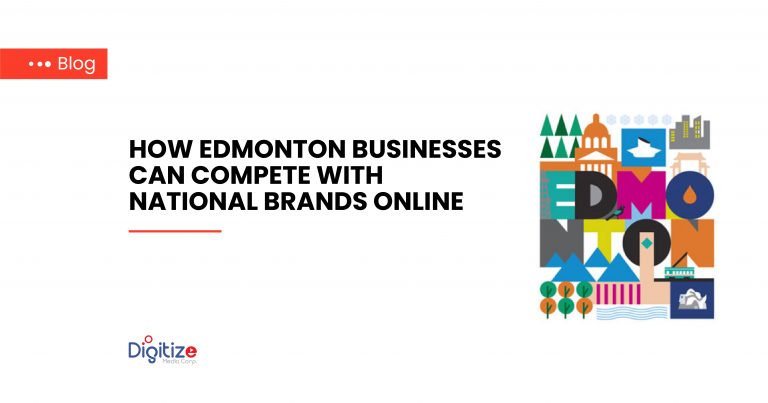Navigating CDAP Data Privacy Concerns
In the age of digital information, data privacy stands as a cornerstone of user trust, especially in the context of the Canada Digital Adoption Plan (CDAP) in Edmonton. ‘CDAP data privacy’ is a crucial consideration for users who participate in CDAP’s various initiatives. With the CDAP Digital Advisor in Edmonton playing a pivotal role, it’s essential to delve into the nuances of data privacy regulations, compliance, and best practices within CDAP to protect user data. This comprehensive article aims to provide users with in-depth insights into these critical aspects.
Understanding Data Privacy in CDAP Initiatives
Understanding data privacy in CDAP (Canada Digital Adoption Plan) initiatives involves comprehending how personal and sensitive information is handled, protected, and used within the program. This understanding is crucial, considering the increasing emphasis on digital data security and privacy in our current digital landscape. Here are the key aspects that underpin data privacy in CDAP initiatives:
- Adherence to Legal Standards and Regulations: CDAP projects have to abide by all applicable rules and legislation pertaining to data privacy. This includes both federal and local laws that govern the collection, storage, use, and sharing of personal data. This is frequently used in Canada to allude to laws like the Personal Information Protection and Electronic Documents Act (PIPEDA), which establishes guidelines for the handling of personal data by businesses in the private sector. Compliance ensures that CDAP initiatives are legally sound and respect the privacy rights of individuals.
- Data Protection Policies and Procedures: CDAP initiatives are guided by specific policies and procedures designed to protect data. These policies dictate how data should be handled and protected throughout its lifecycle, from collection to deletion. They cover aspects such as data storage, access controls, data encryption, and the secure disposal of information. The aim is to safeguard data against unauthorized access, disclosure, alteration, and destruction.
- Role of CDAP Digital Advisor in Edmonton: The CDAP Digital Advisor in Edmonton plays a pivotal role in ensuring that data privacy protocols are adhered to within the program. It includes overseeing the implementation of data protection strategies, ensuring staff are trained in data privacy best practices, and staying updated on changes in data privacy laws and technologies.
- User Consent and Rights: A core principle in CDAP’s data privacy approach is respecting user consent. This means that personal data is not collected, processed, or shared without explicit permission from the individual. Additionally, CDAP initiatives ensure that users are informed about their data rights, including the right to access their data, request corrections, or have their data deleted.
- Risk Management and Data Privacy Impact Assessments: Regular risk assessments are conducted to identify potential data privacy risks in CDAP initiatives. These assessments help in proactively addressing vulnerabilities and implementing measures to mitigate risks. Data Privacy Impact Assessments (DPIAs) are also performed, especially when introducing new projects or technologies, to evaluate how these changes might affect the privacy of individuals’ data.
- Ongoing Monitoring and Review: Data privacy is not a one-time effort but an ongoing process. CDAP initiatives involve regular monitoring and review of data practices to ensure continuous compliance and adaptation to new challenges or changes in the regulatory landscape.
Legal Frameworks and Compliance in Data Privacy
Compliance with Regulations
CDAP initiatives in Edmonton are governed by data protection laws like the Personal Information Protection and Electronic Documents Act (PIPEDA) and other relevant local regulations. For CDAP to operate, certain laws must be followed.
Regular Audits and Assessments
Regular audits and risk assessments are conducted to ensure that CDAP’s data handling practices are in line with legal requirements and industry standards.
Best Practices in CDAP Data Privacy
Data Minimization and Encryption:
Employing data minimization principles to collect only what is necessary and using encryption to protect data at rest and in transit are key practices.
User Consent and Transparency:
CDAP places high importance on obtaining explicit user consent for data collection and processing, coupled with transparent communication about how user data is used.
Employee Training and Awareness:
Regular training for CDAP staff and volunteers on data privacy principles and practices ensures a well-informed team that can effectively safeguard user data.
Overcoming Challenges in Data Privacy
Addressing and overcoming challenges like evolving threats, changes in legal frameworks, and technological advancements are crucial for maintaining robust data privacy within CDAP.
CDAP’s Role in Promoting Data Privacy Awareness
CDAP not only implements data privacy measures but also plays a role in educating users and the community about the importance of data privacy and protection.
Data Privacy at the Heart of CDAP’s Mission
The key takeaway is that data privacy is an integral aspect of CDAP’s mission in Edmonton. By adhering to regulations, following best practices, and continuously addressing challenges, CDAP ensures the protection and respectful handling of user data.
For insights into how blockchain technology is integrated within CDAP for enhancing data security and privacy, visit CDAP and Blockchain.
Upholding User Trust through CDAP Data Privacy
In conclusion, ‘CDAP data privacy’ is not just a compliance requirement but a commitment to user trust and safety. CDAP’s robust data privacy measures ensure that users’ personal information is handled with the utmost care and responsibility, reinforcing the program’s credibility and trustworthiness.
Stay informed and secure with CDAP’s data privacy initiatives. Learn more about how CDAP in Edmonton is protecting your digital information and contributing to a safer digital environment.









